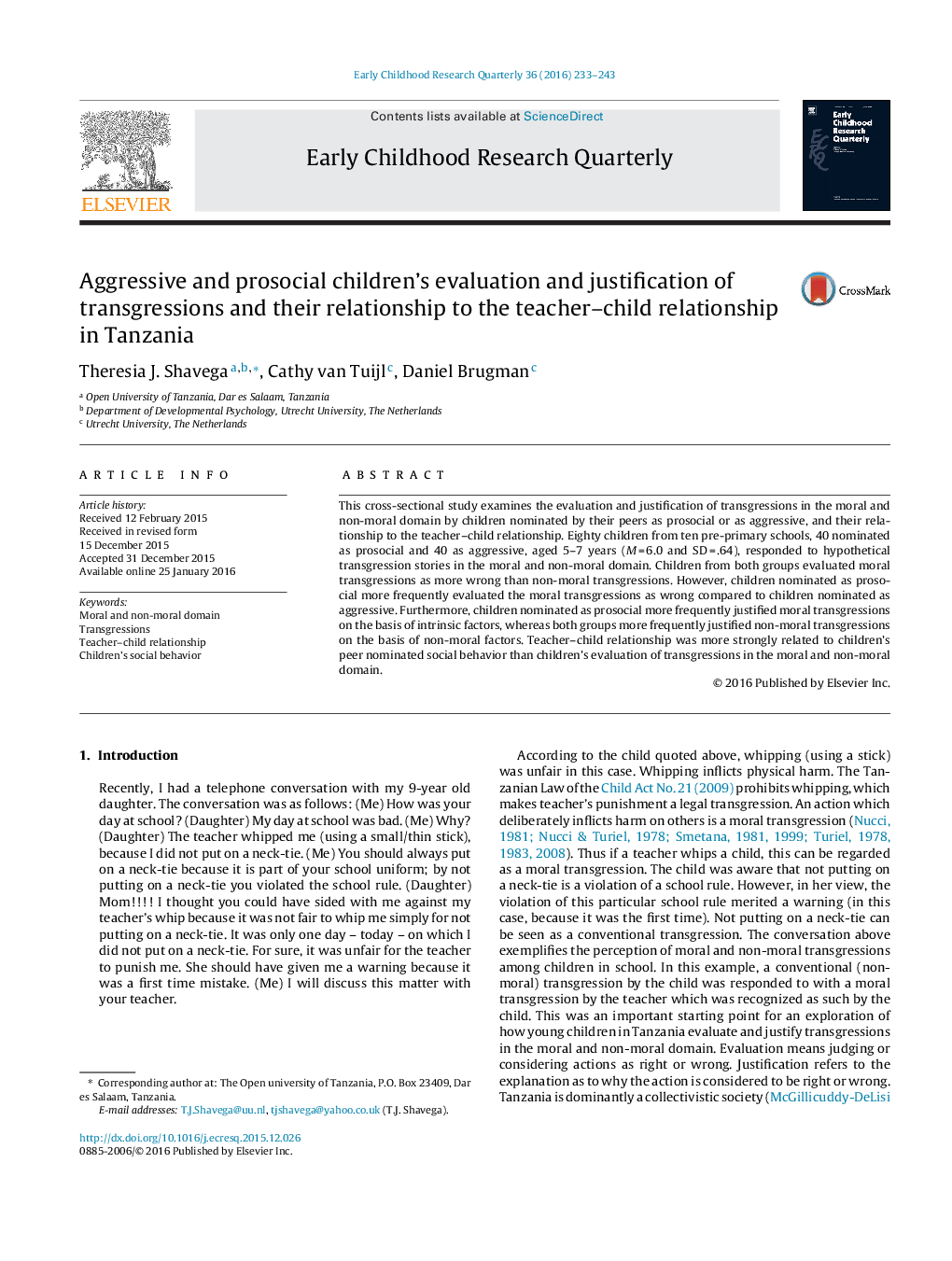| Article ID | Journal | Published Year | Pages | File Type |
|---|---|---|---|---|
| 353661 | Early Childhood Research Quarterly | 2016 | 11 Pages |
•In Tanzanian preschools prosocial and aggressive children evaluated moral transgressions as more wrong than non-moral transgressions.•In justifying moral transgressions as being wrong prosocial children more frequently used intrinsic factors compared to aggressive children.•Children’s evaluation of transgressions in the moral domain as more wrong was positively related to teacher-child closeness.
This cross-sectional study examines the evaluation and justification of transgressions in the moral and non-moral domain by children nominated by their peers as prosocial or as aggressive, and their relationship to the teacher–child relationship. Eighty children from ten pre-primary schools, 40 nominated as prosocial and 40 as aggressive, aged 5–7 years (M = 6.0 and SD = .64), responded to hypothetical transgression stories in the moral and non-moral domain. Children from both groups evaluated moral transgressions as more wrong than non-moral transgressions. However, children nominated as prosocial more frequently evaluated the moral transgressions as wrong compared to children nominated as aggressive. Furthermore, children nominated as prosocial more frequently justified moral transgressions on the basis of intrinsic factors, whereas both groups more frequently justified non-moral transgressions on the basis of non-moral factors. Teacher–child relationship was more strongly related to children’s peer nominated social behavior than children’s evaluation of transgressions in the moral and non-moral domain.
